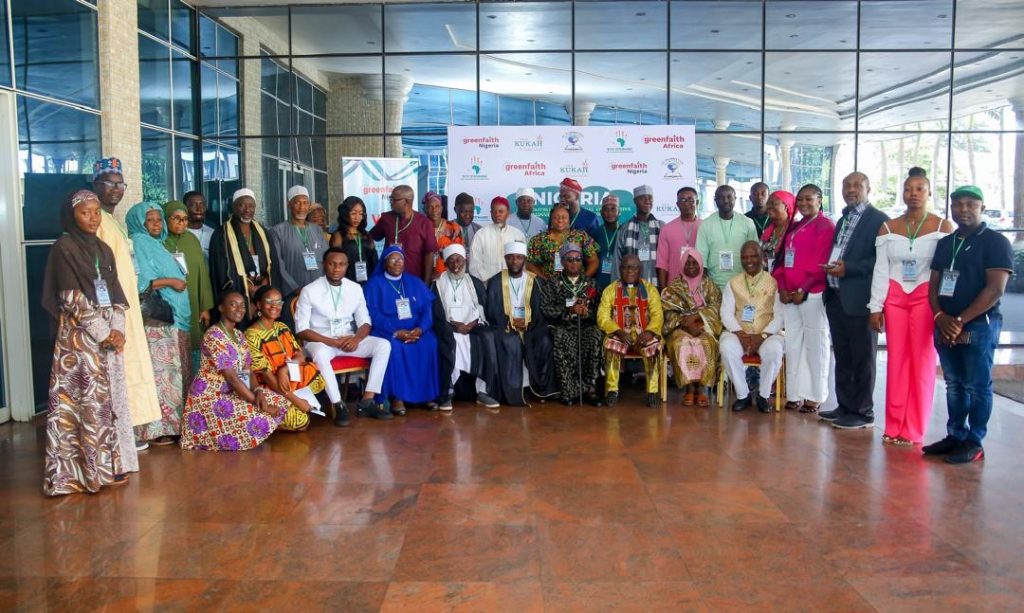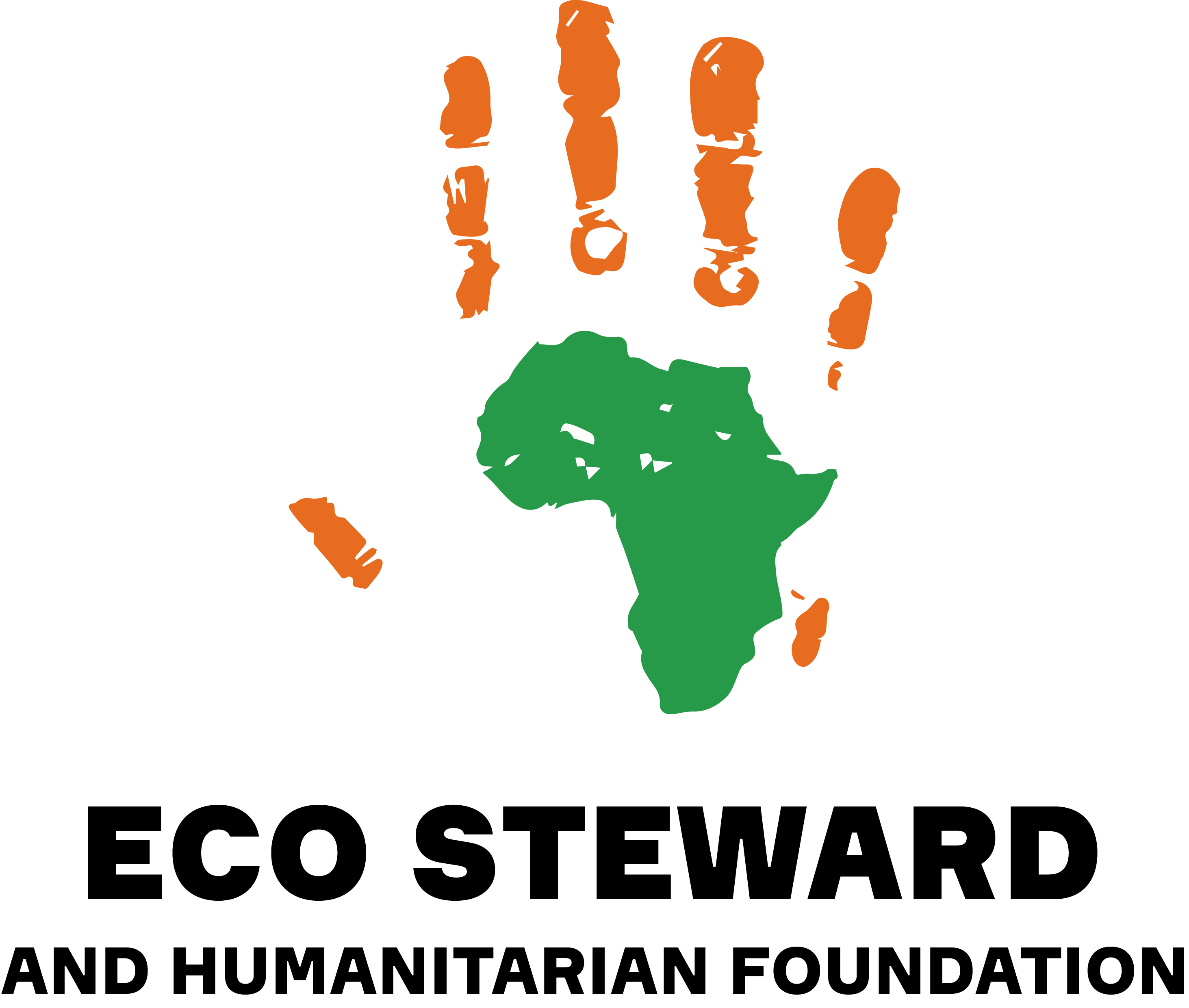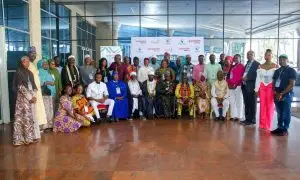Written by Nweze Emmanuel Obinna

Faith leaders from diverse communities in Nigeria have called upon the government to prioritize justice and equity in implementing the country’s energy transition program. This appeal emphasizes safeguarding the environmental and health rights of communities affected by the harmful consequences of fossil fuel activities.
During a two-day Multi-Faith Leaders National Consultative Dialogue on Medium and Long-Term Climate Goals, organized by GreenFaith Nigeria in collaboration with Eco Steward and Humanitarian Foundation (EHF), GreenFaith Africa, The Kukah Centre, and Al-Habibiyyah Islamic Society, the leaders urged corporations such as Shell, ENI, TotalEnergies, and CNOOC to address the environmental damage caused by their operations. They demanded these companies take responsibility for cleanup, provide reparations, and cease harmful exploration activities.
In a unified statement, the faith leaders declared:
“We, representing diverse religious traditions from Nigeria’s six geopolitical zones—Christians, Muslims, Hindus, and traditional communities—speak as one on the urgent need for a fair transition from fossil fuels to renewable energy, ensuring a sustainable future for all Nigerians.”
The Ecological and Social Toll of Fossil Fuels
The group highlighted the devastating environmental and social consequences of fossil fuel exploitation, which exacerbates climate change, fuels biodiversity loss, and results in widespread land contamination. These activities displace communities, disrupt livelihoods, and trigger human rights violations and conflicts.
Since the discovery of fossil fuels in Nigeria and other African nations, the benefits to local populations have been minimal. Overbearing influences from international corporations, financial institutions, and foreign governments, coupled with weak regulatory frameworks and corruption, have deprived African nations of equitable gains. Compounding the issue, over 85% of the fossil fuels extracted from Africa are exported, hindering the continent’s energy development and perpetuating poverty.
A Call for Spiritual and Environmental Responsibility
Faith leaders emphasized that protecting the environment aligns deeply with spiritual teachings. Across religions, safeguarding creation and promoting justice are sacred duties, as articulated in holy scriptures. These obligations require adherents to respect the sanctity of the Earth and ensure the well-being of future generations.
The leaders urged government and international collaborators to uphold these principles in executing energy transition strategies. They proposed a Nine-Point Agenda, stressing the inclusion of local communities and faith leaders in decision-making, equitable access to renewable energy, and public education to foster a green future.
Key Demands and Actions
Among their core demands were:
- Engaging Local Communities: Faith leaders emphasized the importance of consulting affected communities and involving them in policy formulation and implementation.
- Addressing Energy Poverty: Advocating for equal access to renewable energy to alleviate energy poverty in regions impacted by fossil fuel exploitation.
- Supporting Workers and Communities: Provisions for transitioning fossil fuel workers and aiding affected communities were seen as critical to a just transition.
- Ending New Fossil Fuel Projects: The leaders deemed continued exploration incompatible with global climate goals, particularly limiting global warming to 1.5°C.
- Fostering Global Solidarity: They called for international collaboration, robust financial and policy support, and media involvement to ensure the success of Nigeria’s transition targets.
Voices of Leadership and Commitment
Pius Oko, Program Manager at GreenFaith Africa, commended the collective resolve of the faith leaders, saying:
“We are not only envisioning a better future but are committed to taking bold steps to bring that vision to life. Our shared faith and commitment to justice drive us toward a renewable and equitable future.”
Similarly, Rev. Fr. Atta Barkindo, Executive Director of The Kukah Centre, painted a poignant picture of the Niger Delta’s plight, stating:
“Our lands, once fertile, now bear the scars of exploitation. Oil spills poison our waters, gas flares darken our skies, and communities are fragmented by environmental degradation and inequality. This unsustainable path betrays our sacred duty as stewards of creation.”
Imam Faud Adeyemi, Chief Imam of Al-Habibiyyah Islamic Society, underscored the pivotal role of faith leaders, describing them as pillars of trust and moral guidance in their communities. He emphasized the need for faith leaders to champion a clean energy future actively:
“We must lead by example, guiding our communities toward hope and transformation. This journey requires courage, compassion, and collective effort.”
Meryne Warah, Global Director of Programs at GreenFaith, highlighted the critical role of advocacy and awareness, urging faith leaders to leverage their influence to raise issues affecting vulnerable communities.
A Path Forward
For Nigeria to achieve its energy transition goals, faith leaders must act as stewards and educators, promoting environmental responsibility and social justice. Their advocacy ensures that the transition reflects the values and aspirations of all Nigerians, leaving no one behind.
The dialogue reaffirmed the belief that an inclusive and just energy transition is attainable. With cooperation, compassion, and trust, Nigeria can pave the way for a renewable future that aligns with the principles of fairness, equity, and sustainability.

